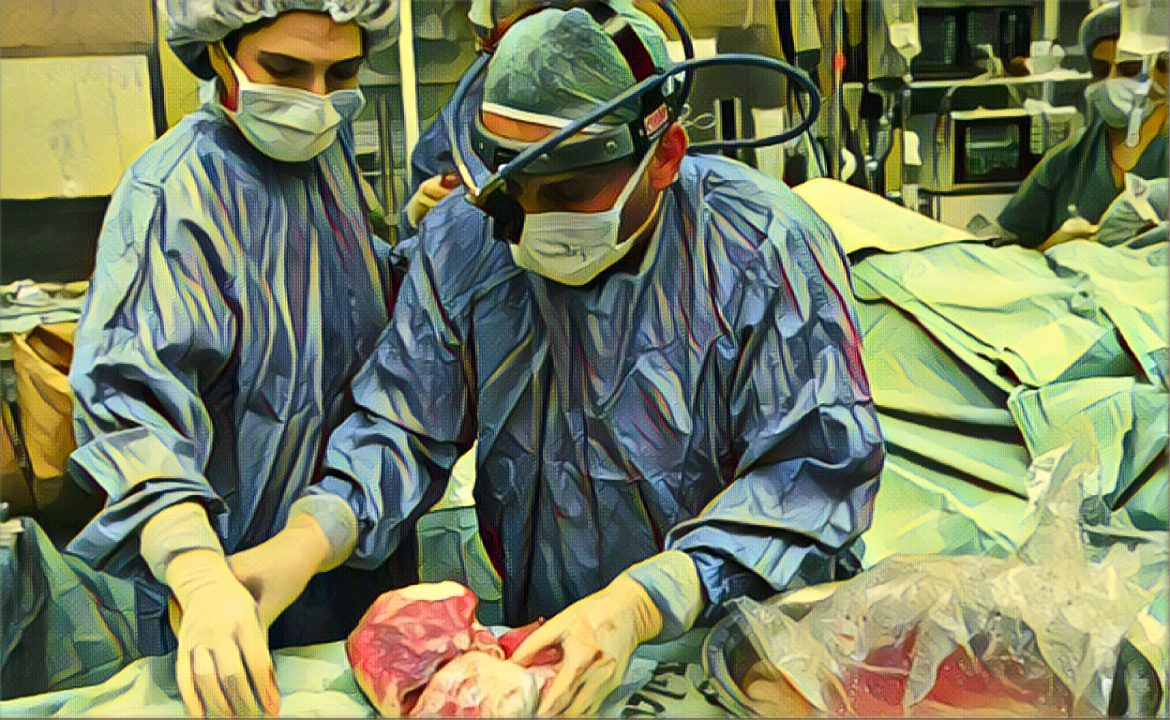Nigeria’s healthcare system is facing a crisis of trust as more cases of organ theft are reported across the country. Some patients who undergo surgery in private hospitals lose vital organs without their consent or knowledge, while others are lured into the country with false promises of job opportunities and then trafficked for their kidneys.
Organ theft is a form of human trafficking involving the removal of organs from living or dead victims to sell them on the black market. According to the World Health Organization (WHO), an estimated 10,000 organs are illegally traded yearly, with kidneys being the most in demand. The global organ trade is driven by a shortage of donors, a growing demand for transplants, and a lack of regulation and enforcement.
In Nigeria, organ theft has exposed the cracks in the healthcare system, which suffers from low funding, poor infrastructure, inadequate personnel, and weak oversight. The federal government’s role is mostly limited to coordinating the affairs of the university teaching hospitals and federal medical centers, while the state government manages the general hospitals and the local government focuses on dispensaries. However, many Nigerians lack access to quality and affordable healthcare services and often resort to self-medication or traditional healers.
Private healthcare providers have a visible role in healthcare delivery, but some are unscrupulous and exploit the vulnerability of their patients. In recent months, several cases of organ theft have been reported in different parts of the country, sparking outrage and fear among Nigerians.
One of the victims was Kehinde Kamal, a middle-aged man with a kidney harvested at a private clinic in Nasarawa State. He had gone to the clinic for minor surgery to remove a lump on his neck but ended up losing his kidney without his knowledge. He only discovered what had happened to him when he developed complications and sought medical attention at another hospital.
Another victim was Adebola Akin-Bright, a 12-year-old boy with a portion of his intestine removed at a private hospital in Lagos State. He had been admitted for appendicitis but was subjected to two surgeries by a doctor who was not a certified surgeon. He was later referred to a public hospital, where another corrective surgery was done to remove a large mass of black tissue from his intestine. His mother accused the private hospital of stealing her son’s organ and demanded justice.
The Nigerian Medical Association (NMA) has condemned the incidents of organ theft and called for a thorough investigation and prosecution of the perpetrators. The NMA also urged the public to be vigilant and report any suspicious activities or practices in any health facility to the relevant authorities.
The Health Facility Monitoring and Accreditation Agency (HEFAMAA) regulates and monitors the activities of health facilities in Lagos State. The agency has set up a panel to investigate the case of Akin-Bright and has suspended the license of the private hospital involved. The agency also advised Nigerians to patronize only accredited health facilities and check the credentials of their doctors before undergoing any procedure.
The National Agency for the Prohibition of Trafficking in Persons (NAPTIP) is the lead agency for combating human trafficking in Nigeria. The agency has recorded several cases of organ trafficking involving Nigerians who were deceived into traveling abroad for non-existent jobs and then forced to donate their organs. The agency has also arrested some suspects who were involved in recruiting and transporting victims for organ harvesting.
The agency has warned Nigerians to be wary of any offer that sounds too good to be true and to verify any information before traveling out of the country. The agency has also appealed to Nigerians to report human trafficking or organ theft to its 0800 22 55 27847 hotline.
Organ theft is a serious crime that violates the dignity and rights of human beings. It also poses a threat to public health and safety, as it exposes both donors and recipients to infections and complications. Nigerians deserve better protection from this menace and more access to quality healthcare services that respect their autonomy and consent.
Source: Business Day


